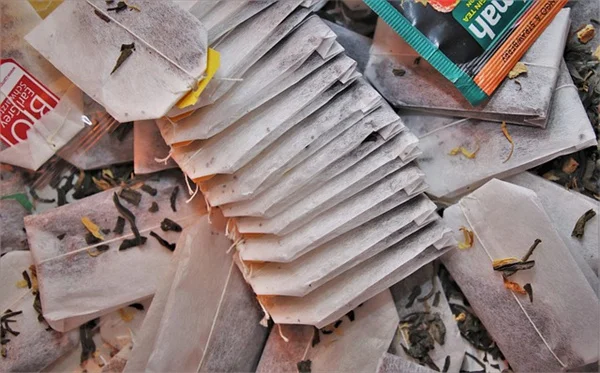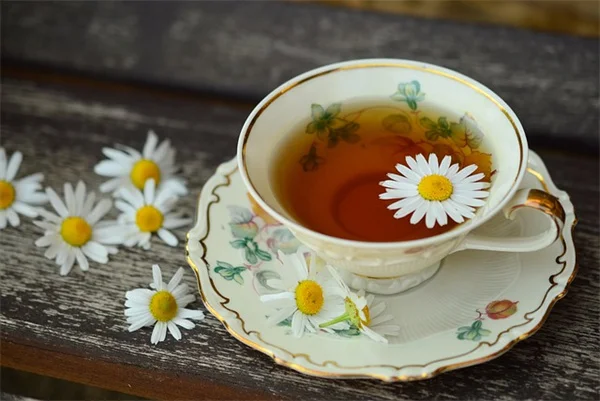Unlock the Secrets of Using Ammonia to Clean Floors Like a Pro!
Are you wondering about using ammonia to clean floors? The answer is a resounding yes! Ammonia is a powerful cleaner that not only tackles tough stains but also shines your floors like never before. In this guide, I’ll share with you the science behind ammonia's cleaning prowess, the best techniques for application, and even some crucial safety tips to keep in mind. You might be surprised at how effective and budget-friendly ammonia can be, transforming your cleaning routine into a breeze! So, let’s dive into the world of ammonia cleaning and discover how you can achieve sparkling floors effortlessly! 🧼✨
E.g. :How to Clean the Floor of a Shower: 7 Easy Steps for a Sparkling Clean Space!
- 1、Ammonia Floor Cleaning: The Ultimate Guide for Sparkling Floors 🧼✨
- 2、Why Ammonia is a Cleaning Superstar
- 3、Mastering Ammonia Floor Cleaning Like a Pro
- 4、Safety First: Ammonia Edition
- 5、Ammonia Cleaning for Different Floor Types
- 6、Eco-Friendly Ammonia Alternatives
- 7、Ammonia Cleaning Hacks You'll Love
- 8、Final Thoughts on Ammonia Floor Cleaning
- 9、FAQs
Ammonia Floor Cleaning: The Ultimate Guide for Sparkling Floors 🧼✨
Why Ammonia is a Cleaning Superstar
The Science Behind Ammonia's Cleaning Power
Ever wonder why your grandma swore by ammonia for cleaning? Ammonia is a chemical powerhouse that attacks dirt and grease at the molecular level. The NH3 molecules in ammonia act like tiny scrub brushes, breaking down stubborn stains that make other cleaners give up.
Here's a fun fact: ammonia is so effective that many commercial cleaners use it as their secret weapon (but charge you 3x the price!). When we use ammonia to clean floors, we're getting professional-grade cleaning without the fancy packaging or celebrity endorsements.
Ammonia vs. The Competition
Let's settle the great cleaning debate once and for all. Check out this comparison of ammonia versus other common cleaners:
| Cleaner | Cost per Use | Effectiveness | Safety |
|---|---|---|---|
| Ammonia | $0.10 | ★★★★★ | ★★★☆☆ |
| Vinegar | $0.15 | ★★★☆☆ | ★★★★★ |
| Bleach | $0.25 | ★★★★☆ | ★★☆☆☆ |
See that? Ammonia gives you maximum cleaning power at minimum cost. It's like getting a luxury car for the price of a bicycle!
Mastering Ammonia Floor Cleaning Like a Pro
 Photos provided by pixabay
Photos provided by pixabay
The Perfect Ammonia Mix Formula
Want to know the secret ratio that cleaning professionals use? Here's the golden formula:
1 cup ammonia + 1 gallon warm water = cleaning magic
But wait - did you know the water temperature matters? Warm water (not hot!) helps the ammonia work faster. It's like giving your cleaner a cup of coffee before starting the job!
Application Techniques That Make a Difference
Here's where most people go wrong with ammonia floor cleaning:
❌ Pouring directly on floors (hello, streaks!)
✅ Using a spray bottle for even distribution
Pro tip: Work in 3x3 foot sections. This prevents the solution from drying too fast and gives the ammonia time to break down grime. Think of it like marinating meat - the longer it sits (within reason), the better the results!
Safety First: Ammonia Edition
Must-Have Safety Gear
Before you start your ammonia floor cleaning adventure, suit up with:
• Rubber gloves (the kind that go up to your elbows)
• Safety goggles (no, your regular glasses don't count)
• A mask (unless you enjoy coughing fits)
Remember that time I thought I could clean without gloves? My hands felt like they'd been sunburned for days. Learn from my mistakes!
 Photos provided by pixabay
Photos provided by pixabay
The Perfect Ammonia Mix Formula
Never, ever mix ammonia with bleach. This isn't some old wives' tale - it creates toxic chloramine gas that can literally knock you out. If you remember nothing else from this guide, remember this life-saving rule.
Funny story: My neighbor Bob once mixed them "just to see what would happen." Let's just say the fire department wasn't amused, and Bob learned an expensive lesson about chemistry.
Ammonia Cleaning for Different Floor Types
Best Floor Types for Ammonia
Ammonia shines (literally) on these surfaces:
• Ceramic tile (makes grout look new again)
• Vinyl (cuts through that mysterious sticky film)
• Linoleum (brings back the original shine)
But what about hardwood? That's where things get tricky...
Floor Types to Avoid
Ammonia is basically kryptonite for:
• Hardwood (dries it out like the Sahara)
• Laminate (can cause warping)
• Natural stone (etches the surface)
Here's a quick test: if your floor costs more than your car, maybe skip the ammonia!
Eco-Friendly Ammonia Alternatives
 Photos provided by pixabay
Photos provided by pixabay
The Perfect Ammonia Mix Formula
If ammonia's environmental impact worries you, try these alternatives:
• Vinegar + water (great for light cleaning)
• Castile soap (gentle but effective)
• Baking soda paste (for tough stains)
But let's be real - sometimes only ammonia can handle that mystery stain from last year's Super Bowl party.
Proper Disposal of Ammonia
Here's something most people don't think about: how to dispose of ammonia safely. Never pour it down the drain - it can wreak havoc on water treatment systems. Instead:
1. Use up what you can
2. Dilute heavily with water
3. Check local hazardous waste disposal
Your local fish will thank you for not turning their home into a toxic soup!
Ammonia Cleaning Hacks You'll Love
The Microwave Trick
Got a gross microwave? Mix 1 tablespoon ammonia with 1 cup water in a microwave-safe bowl. Heat for 5 minutes, then wipe clean. The steam loosens grime so you barely need to scrub!
Warning: Your microwave will be so clean, you might start taking pictures of it to show off to friends.
Reviving Old Mops
Soak your mop head in ammonia water overnight to kill bacteria and remove built-up grime. It's like a spa day for your mop!
Bonus: Your mop will smell better (which is saying something for a cleaning tool).
Final Thoughts on Ammonia Floor Cleaning
When Ammonia is the Right Choice
Ammonia floor cleaning is perfect when you need:
• Heavy-duty cleaning power
• Budget-friendly solutions
• Quick evaporation (no waiting around)
It's like having a superhero cleaner under your sink - just remember to use its powers responsibly!
Knowing When to Call in the Pros
Sometimes, even ammonia isn't enough. If you're dealing with:
• Years of built-up wax
• Severe discoloration
• Delicate antique floors
It might be time to call professional cleaners. Think of it like going to the dentist - some jobs just need expert hands!
There you have it - everything you need to know about ammonia floor cleaning. Now go forth and make those floors sparkle! Just remember to open a window first 😉
In wrapping up our deep dive into using ammonia to clean floors, it's clear that this powerful cleaner is a game-changer for many households. We’ve explored how ammonia works at a molecular level, its unbeatable cost-effectiveness, and the techniques that can help you master the art of floor cleaning like a pro. With just a cup of ammonia mixed with warm water, you can tackle those stubborn stains that other cleaners struggle with, giving your floors that professional-grade shine without breaking the bank. 💪✨
As we’ve discussed, safety is paramount. Always remember to wear your protective gear and never mix ammonia with bleach to avoid dangerous fumes. And while ammonia is fantastic for surfaces like ceramic tile and vinyl, be cautious around hardwood and natural stone floors. Embracing ammonia in your cleaning routine means you’re choosing efficiency and effectiveness, but it’s essential to know when to call in the professionals for delicate tasks. You’ve got the tools and knowledge to make your floors sparkle now, so go ahead and put these tips into practice! I encourage you to share your own experiences or ask questions in the comments below. Happy cleaning! 🧼😊
Additionally, if you're interested in eco-friendly options, don't forget about the alternatives we discussed, like vinegar and baking soda. These can be great for lighter cleaning tasks and can help keep your home fresh without harsh chemicals. Remember, cleanliness doesn't have to come at the cost of the environment. Let’s keep the conversation going about our favorite cleaning hacks or any struggles you've faced while trying to maintain your floors. Together, we can learn to make our homes not just cleaner but also safer and more inviting! 🌿💚
E.g. :How does everyone feel about using ammonia to clean sticky floors ...
FAQs
What is the best way to use ammonia for floor cleaning?
The best way to use ammonia for floor cleaning is to mix 1 cup of ammonia with 1 gallon of warm water. This mixture helps the ammonia work effectively to break down dirt and grime. It's important to use a spray bottle to apply the solution evenly instead of pouring it directly on the floor, which can cause streaks. Working in small sections, about 3x3 feet, allows the ammonia to penetrate and clean thoroughly, giving you that professional-clean look without the hefty price tag!
Is ammonia safe for all floor types?
No, ammonia is not safe for all floor types. It works wonders on surfaces like ceramic tile, vinyl, and linoleum, but it can be harmful to hardwood, laminate, and natural stone floors. Using ammonia on hardwood can dry it out, while laminate can warp, and natural stone may get etched. If your floor is particularly expensive or delicate, it’s better to avoid ammonia altogether to prevent damage.
Can I mix ammonia with other cleaners for better results?
You should never mix ammonia with bleach or any other cleaners. Mixing ammonia with bleach creates toxic chloramine gas, which can be extremely dangerous and even life-threatening. It's crucial to keep your cleaning supplies separate to ensure both your safety and the effectiveness of your cleaning regimen. Always stick to using ammonia by itself or with safe alternatives like water or vinegar for light cleaning.
How do I dispose of ammonia safely?
Disposing of ammonia requires careful consideration to avoid harming the environment. Never pour it down the drain, as it can disrupt local water treatment systems. Instead, use up what you can, dilute it heavily with water, and check your local hazardous waste disposal guidelines. This way, you can ensure that you're disposing of ammonia safely and responsibly, protecting both your community and the environment.
What are some eco-friendly alternatives to ammonia for cleaning?
If you're looking for eco-friendly alternatives to ammonia, consider using a mixture of vinegar and water for light cleaning tasks. Castile soap is another gentle yet effective option, and a baking soda paste can work wonders on tough stains. While these alternatives are great for everyday cleaning, remember that ammonia is sometimes necessary for those stubborn stains that just won’t budge. Choose the right cleaner based on your specific cleaning needs!


